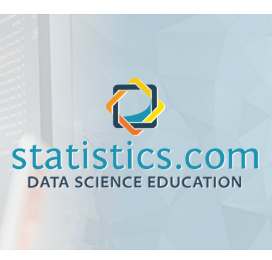| Brand New Data Science Courses on edX |
| Written by Sue Gee | |||
| Wednesday, 19 October 2022 | |||
|
Data Science is a topic that crops up week in and week out on this site. Four new courses added to the edX platform will be of interest to anyone wanting to move into this discipline. Two of the courses are at introductory level and the other two tackle the issue of ethics. Earlier this month in Data Scientists Salary Data, which revealed that high demand for those with skills in data science has resulted in higher than average pay and good starting salaries, I pointed to a number of training opportunism from online providers, including a Data Science Masters On edX which involves a considerable commitment both financially and in terms of time. In contrast these new courses are relatively short and all are free to audit, Disclosure: When you make a purchase having followed a link to a course provider from this article, we may earn an affiliate commission. Understanding the World Through Data is a 9-week course, 3-6 hours per week, from MIT (Massachusetts Institute of Technology) which started for the first time on October 18th and runs until December 20th. Only students on the Verified Track ($49) will have access to the course material after that date. It is a hands-on, introductory course in which students examine all the forms in which data exists, learn tools that uncover relationships between data, and leverage basic algorithms to understand the world from a new perspective. It comprises four modules each of which has videos, short exercises and a final capstone project (though graded assignments are not included if you follow the free, audit track). From the outset the course uses Python, but: You don't need to have any programming background, we will guide you on how to leverage Python to explore and visualize any data. According to its blurb students will learn:
Introduction to Data Science with Python is a self-paced course that is 8 weeks in length assuming 3-4 hours per week and comes from Harvard University. The Verified Track, which issues a certificate for successful completion costs $199. The course overview starts: Data science is an ever-evolving field, using algorithms and scientific methods to parse complex data sets. Describing what to expect it continues: Using Python, learners will study regression models (Linear, Multilinear, and Polynomial) and classification models (kNN, Logistic), utilizing popular libraries such as sklearn, Pandas, matplotlib, and numPy. The course will cover key concepts of machine learning such as: picking the right complexity, preventing overfitting, regularization, assessing uncertainty, weighing trade-offs, and model evaluation. Participation in this course will build your confidence in using Python, preparing you for more advanced study in Machine Learning (ML) and Artificial Intelligence (AI), and advancement in your career. The course outline presents the week-by-week content:
The other two new courses come from Statistics.com, a new partner for 2U, the company that acquired edX in 2021 the now has nine courses on edX from its catalog of over 80 courses. With a 20-year track record it was among the first institutions to embrace online teaching and learning and was first online education institution to be approved by the American Council on Education. The two courses which together form a program on Data Science Ethics are targeted at both practitioners and managers. Each is 4 weeks in length assuming 4-5 hours per week. They are self-paced and can be audited for free. If you want to do more than follow the content the certificate for each is $198. As the blurb for Principles of Data Science Ethics explains the background for the program: Concern about the harmful effects of machine learning algorithms and AI models (bias and more) has resulted in greater attention to the fundamentals of data ethics. News stories appear regularly about credit algorithms that discriminate against women, medical algorithms that discriminate against African Americans, hiring algorithms that base decisions on gender, and more. In most cases, those who developed and deployed these algorithms and data processes had no such intentions, and were unaware of the harmful impact of their work. By the end of this course students will be able to:
The follow on course, Applied Data Science Ethics, provides guidance and practical tools to build better models specifically covering:
More InformationUnderstanding the World Through Data Introduction to Data Science with Python Principles of Data Science Ethics Related ArticlesData Scientist Best Paying Entry-Level Job Says Glassdoor What is a Data Scientist and How Do I Become One? Ethics of AI - A Course From Finland New Data Science Masters On edX Data Scientist or Data Engineer? Choose Your Path On Udacity MasterTracks and Professional Certificates in Data Science on Coursera To be informed about new articles on I Programmer, sign up for our weekly newsletter, subscribe to the RSS feed and follow us on Facebook or Linkedin.
Comments
or email your comment to: comments@i-programmer.info
|
|||
| Last Updated ( Friday, 24 February 2023 ) |




